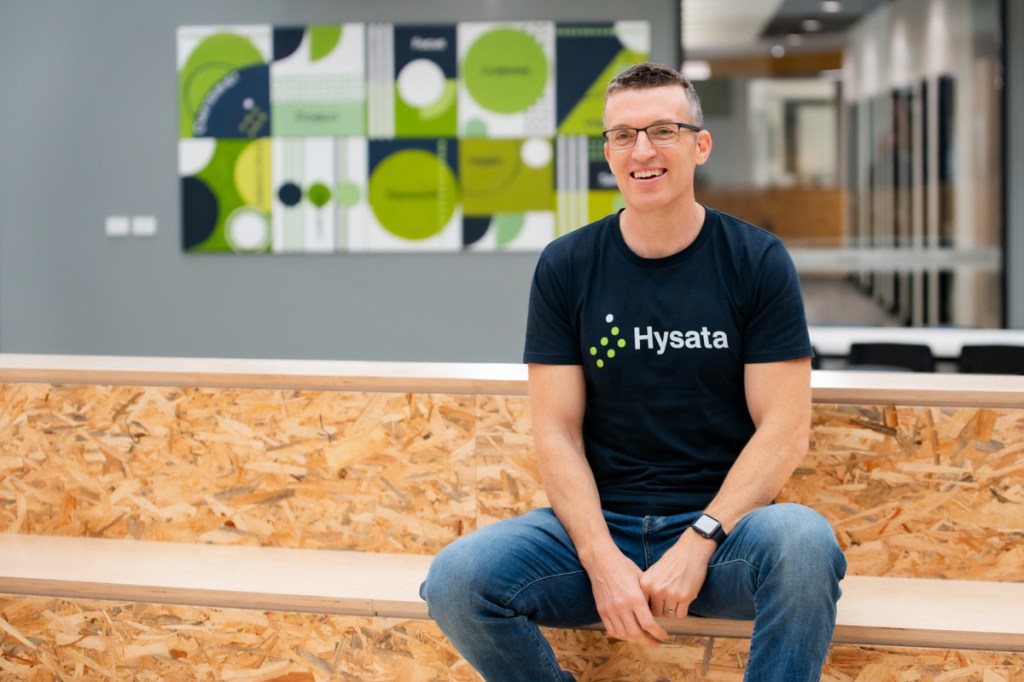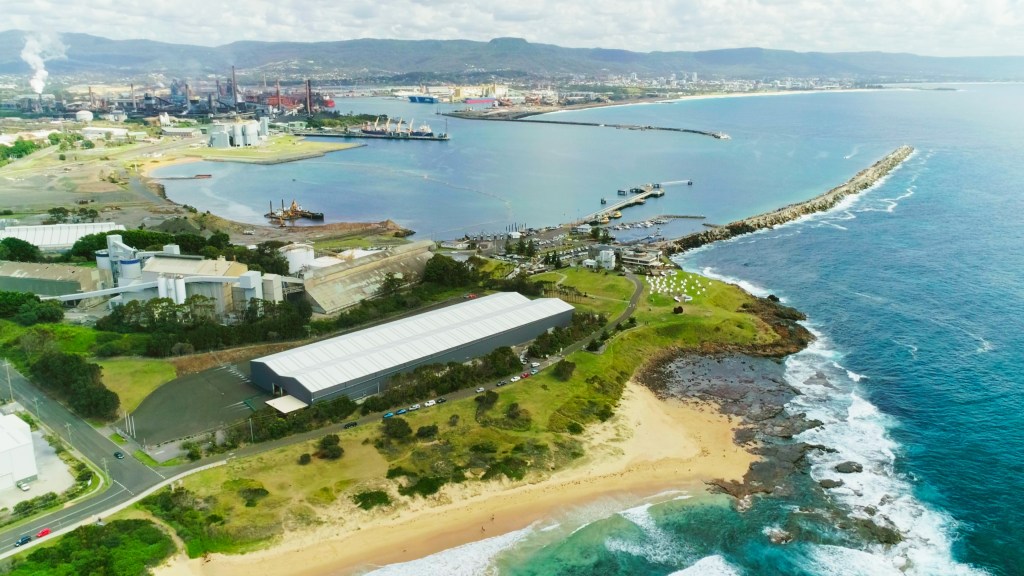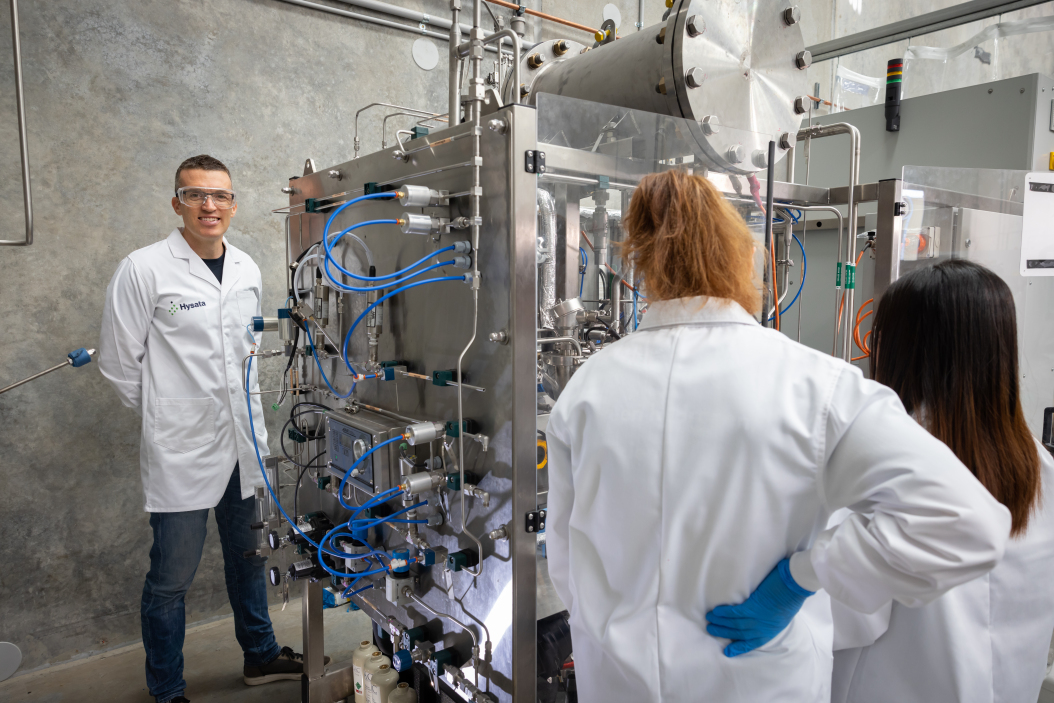Australian start-up Hysata revolutionised the common electrolyser back in 2022. Today, it’s just banked the biggest Series B round for a climate-tech startup in Australia to expand its production capacity.

Climate-tech startup Hysata has announced a $172 million (US$111 million) oversubscribed Series B round, led by bp Ventures and Templewater, along with support from existing investors like Kiki Ventures, Virescent Ventures, Hostplus, IP Group Australia and BlueScopeX.
“This is a phenomenal group of like-minded financial and strategic investors, with a shared vision of accelerating the decarbonisation of hard-to-abate sectors,” CEO Paul Barrett said via a post on LinkedIn. “They each bring immense value to Hysata through their experience, expertise, global footprint, connections, and customer demand in the green hydrogen industry.”
The company, which launched out of Port Kembla, south of Sydney, developed the world’s most energy efficient electrolyser, with 95% efficiency at 41.5 kWh per kilogram of hydrogen. That’s 20% above incumbent technologies, verified in the science journal Nature Communications in 2022.
Hysata says it plans to use the funding to expand production capacity at its manufacturing facility in Wollongong, and further develop its technology.

“This funding round, backed by a world class syndicate of investors, demonstrates the game changing impact Hysata is having on the green hydrogen landscape,” Barrett, says. “It will strengthen our team and enhance our capabilities, as we propel towards widespread commercial availability.”
Hysata’s tech works by reimagining the membrane within an electrolyser. Usually, it serves as resistance, but in Hysata’s case, it’s a sponge twice the thickness of a human hair that eliminates most of that resistance. It’s also plastic, which lends itself well to scale.
The company’s advisory board includes former Australian chief scientist Dr Alan Finkel, former UK Minister of State for Energy and Clean Growth Claire O’Neill, clean energy commentator Michael Liebreich and former BHP boss Dean Dalla Valle (who is its Chair). The Australian Minister for Climate Change and Energy, Chris Bowen, also opened the company’s first electrolyser manufacturing facility and global headquarters in Port Kembla in August last year.
Related
“We not only have this game-changing technology, we’ve also got an approach to mass manufacturing and a transformational supply chain,” Barrett told Forbes in an interview late last year. “We can hyper-scale manufacturing in a very capital-efficient way. We can get a high throughput of product output with little capital equipment required. That’s what has us, and our customers, excited.”
The new investment follows a $42.5 million Series A round led by Virescent Ventures back in 2022.
“We know that green hydrogen can play a big role in decarbonisation,” Gareth Burns, vice president of bp Ventures says. “This is the first advanced alkaline electrolyser technology that bp Ventures has invested in. It could provide optionality for our hydrogen business as bp aims to become a global leader in low carbon hydrogen production. Hysata’s technology could help save energy and reduce production costs, addressing two challenges of the green hydrogen market.”
Look back on the week that was with hand-picked articles from Australia and around the world. Sign up to the Forbes Australia newsletter here or become a member here.



